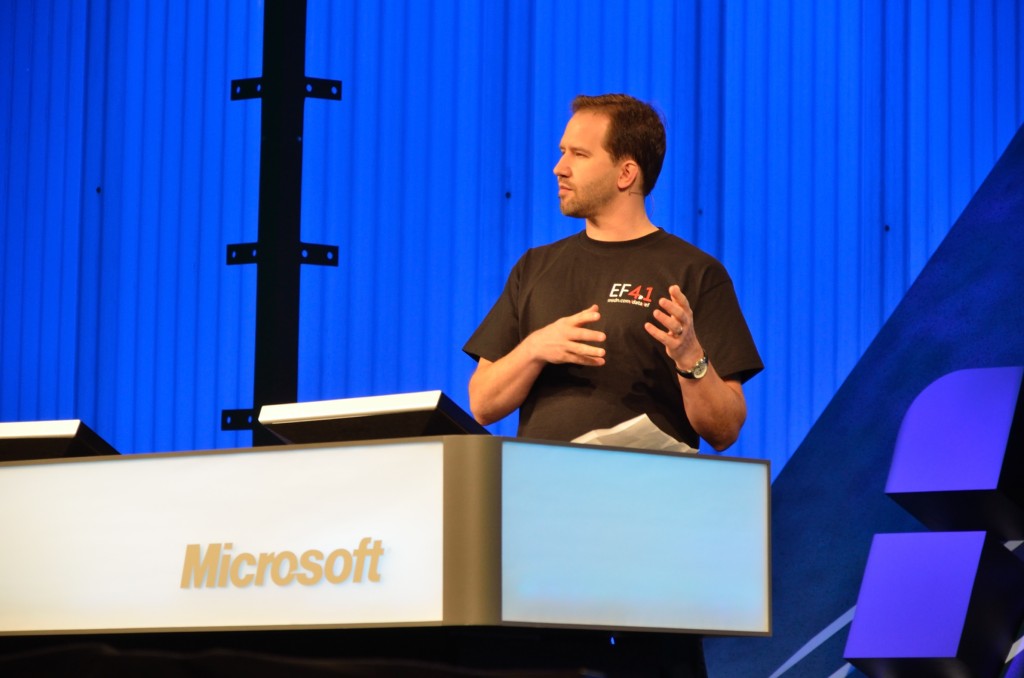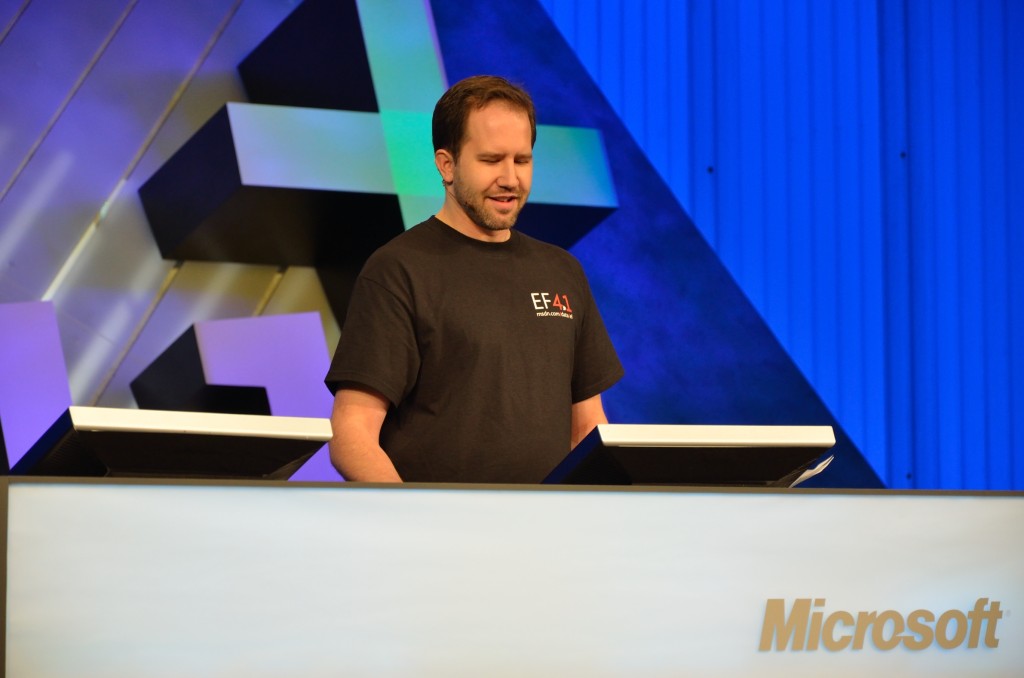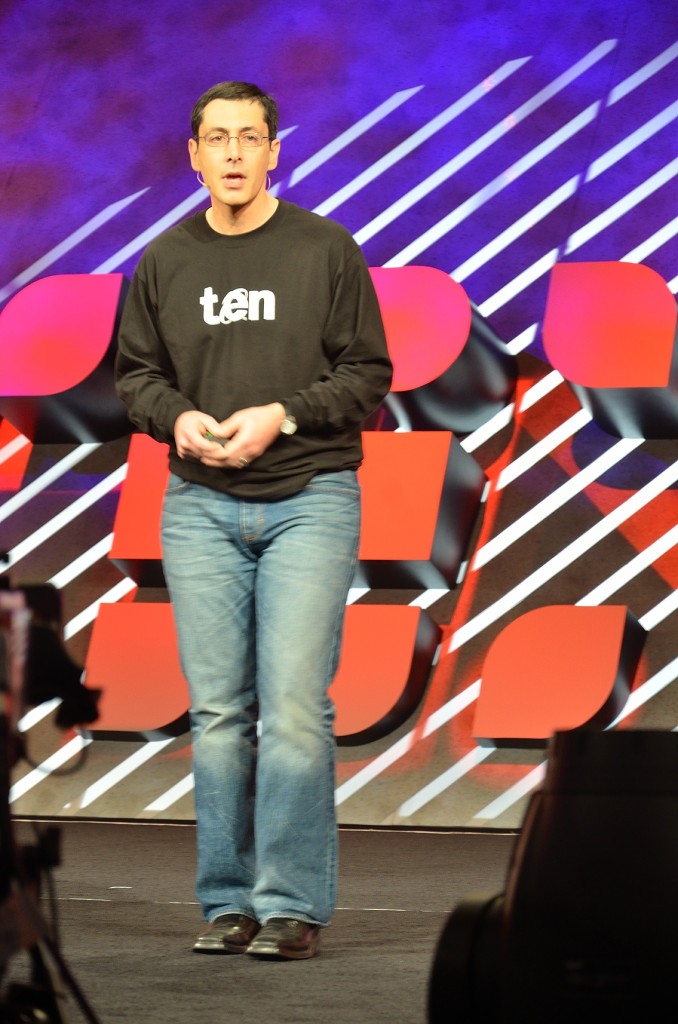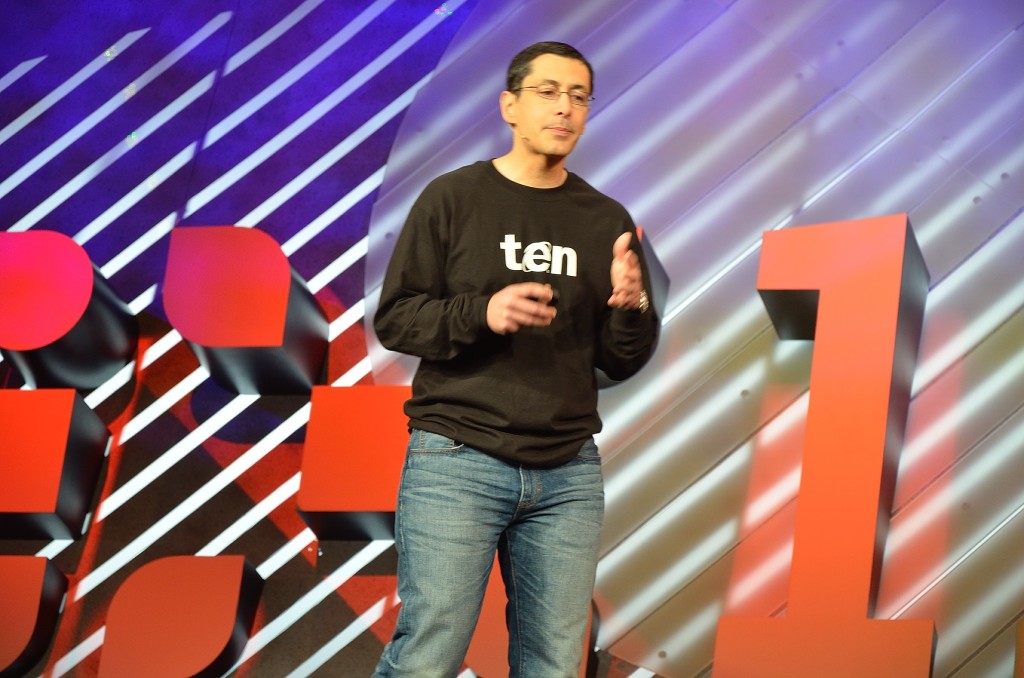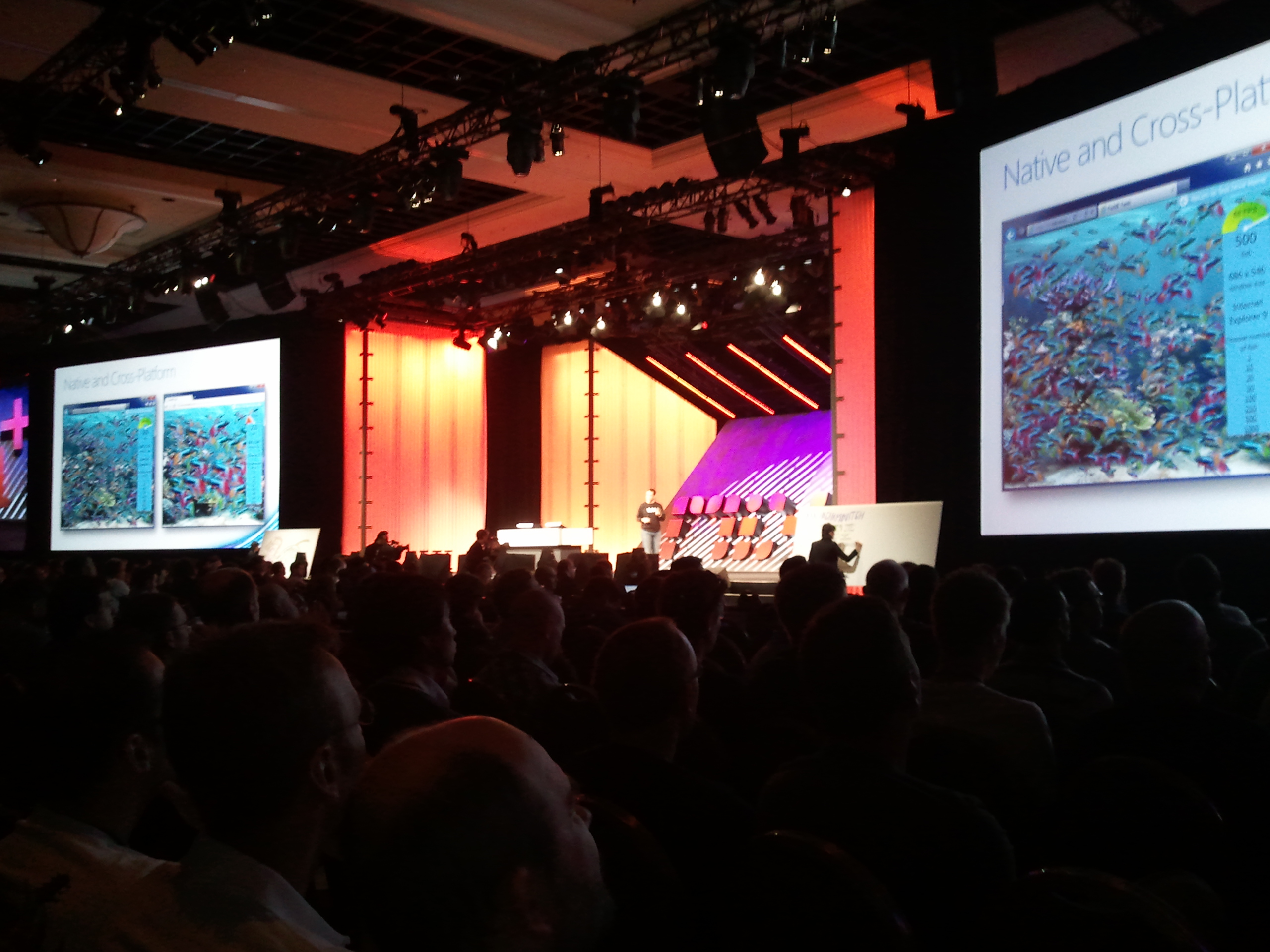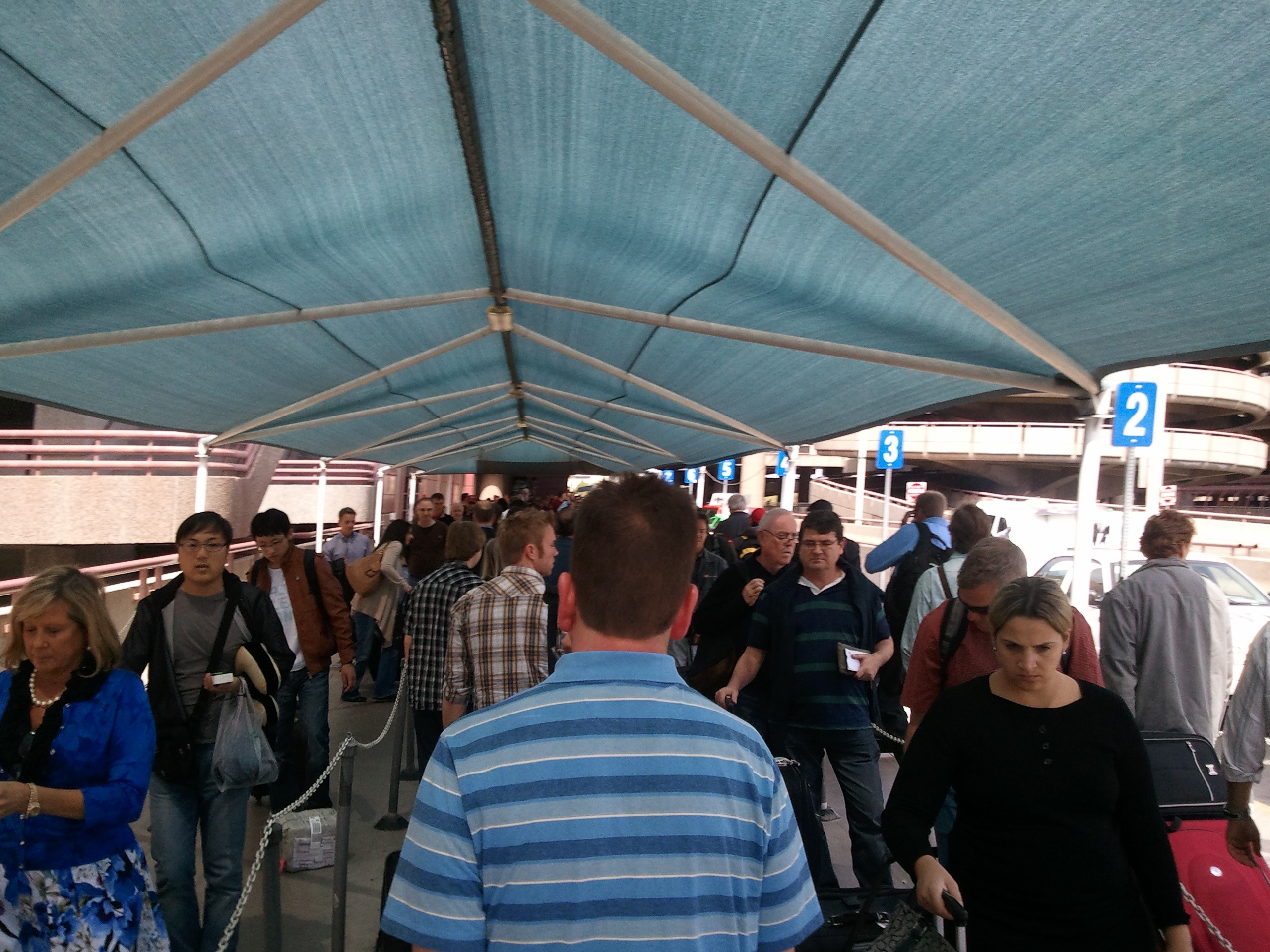When I came to Microsoft over 5 years ago, I was lucky enough to find a side project to work on with some really smart people who, to this day, I consider to be my closest confidants at the company — Erik Porter and Ernie Booth. I can’t get into details entirely about the project except to say that many of our innovations and ideas can now be seen across the company in various forms such as the Kinect, customizable 3D avatars in Xbox consoles, and some stuff in Bing maps that was added and later removed. The project started off with Ernie and Erik discussing a project they had in mind. When I spoke with Erik about an idea I had, he felt there were similarities that could benefit and he introduced me to Ernie. We worked very well together as a trio. Ernie served as the optimist of the group, I the pessimist and Erik the neutral party. We worked late into the evenings talking about our ideas day in and day out. Shortly before submissions were due, we decided to put a Think Week paper together on our work. For those of you unfamiliar with Think Week., here is what Bill Gates says about the process:
Right now, I’m getting ready for Think Week. In May, I’ll go off for a week and read 100 or more papers from Microsoft employees that examine issues related to the company and the future of technology. I’ve been doing this for over 12 years. It used to be an all-paper process in which I was the only one doing the reading and commenting. Today the whole process is digital and open to the entire company.
We hastily put our research into an organized format, captured some screen shots, itterated a few times and prepared to submit our paper. As it happened, the submission deadline for the Think Week paper fell the day after there were massive wind storms and widespread power outages across the PacNW (including Microsoft campus) that made travel nearly impossible. We managed to find the one building with network access, huddled in the hallway and submitted our paper together. We hoped that we would at least get some comment of validation for our work and we walked away knowing that Mr. Gates would not be reading our papers for at least a few weeks.
Imagine my surprise when I got a voicemail from Erik one afternoon proclaiming that Mr. Gates had commented and I needed to read it and call him.
We were suprised that Mr. Gates read our paper and responded quite early — several weeks before his actual “Think Week”. He only did this on a few papers. His feedback was not only positive, it was glowingly positive and filled us with hope and confidence.
Ernie, Erik and I continued to collaborate and we used the positive feedback we had received from our hero to gain us meetings with several executives in the company. We were on a roll. I was sent as a representative of Microsoft to a few standards meetings, conferences, etc. We continued pitching our ideas to several parts of the company. Xbox, Windows, Silverlight/Expression, Bing/Virtual Earth, Microsoft Games, Office and even our own HR department. We continued refining and adding to our pitch. We took internal courses that helped us learn how to better present our ideas. We learned how to use third parties who could act as our “insider” to help us refine and then pitch to our target audience. We gathered support from any place we could get it and even got some significant funding for hardware, software and the like. Somewhere in the bowels of the data center lie three servers that were purchased for us. We filed over a dozen patents in and around our ideas. We worked with Microsoft research and anyone who had even a remote relationship with what we had planned.
I can’t speak for Erik and Ernie but I was, as psychologists Goldstein and Maslow might say, self-actualized — firing on all cylinders, energized, pumped and primed for rapid advancement.
Flash forward to today. I am working at MSDN. I love the people here. I get along well with everyone. However, we all have our own goals and none of them are tied together in a meaningful , day-to-day way. We have no means to energize each other. Each of us have our own tasks. I have no one to bounce ideas off of and to receive their input which in turn will further accelerate another’s thinking. This is what I’m missing. People who I can work with on a day-to-day basis and work on ideas, then capture them in a document.
I’ve been thinking about how to manufacture that feeling again. I want to collaborate with the community on how to work on my next generation of MSDN News. But I’m afraid even that may be difficult as I’m sure no one or two individuals could meet on a regular basis each day. I’d appreciate any thoughts from the community about how I can collaborate in a meaningful way.
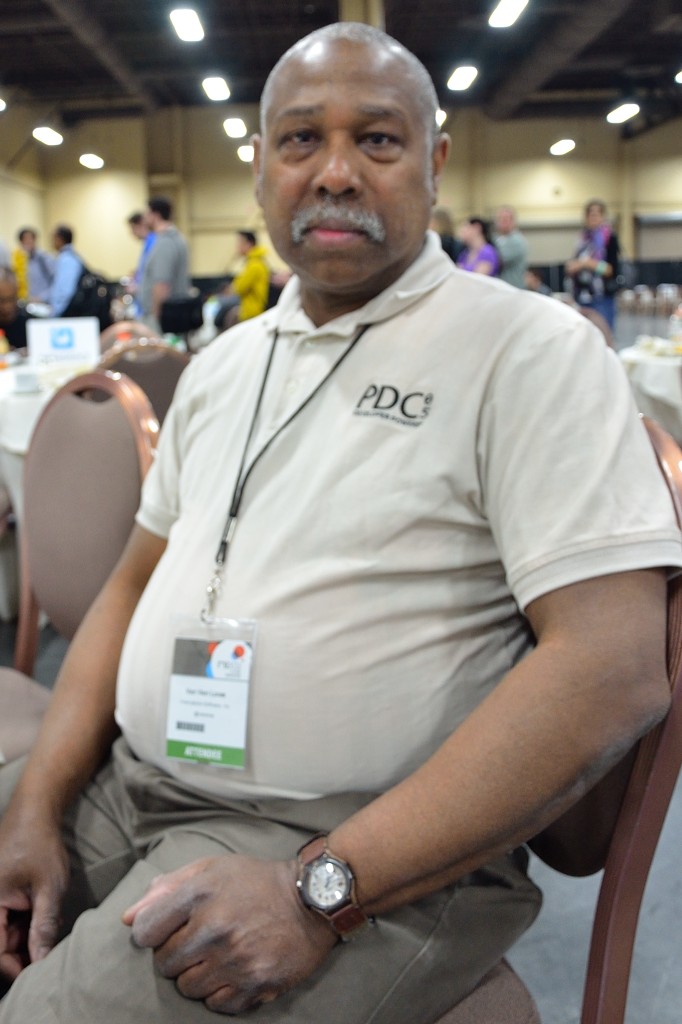 This morning I had the opportunity to speak with Van Van Lowe about his experience with the conference. He said that he too was very happy with the conference and that Mix is his favorite. When I asked what he liked most about Mix that he didn’t see at PDC, he indicated that he enjoyed the web focus because he is a web developer. Strangely enough, I met Van at PDC 2010 while talking with Scott Hanselman. Needless to say this guy gets around to our conferences! Van attended the Orchard breakout session because he said that he has big plans to use Orchard. Van said that he got enough out of the session to get him started and that was basically the point.
This morning I had the opportunity to speak with Van Van Lowe about his experience with the conference. He said that he too was very happy with the conference and that Mix is his favorite. When I asked what he liked most about Mix that he didn’t see at PDC, he indicated that he enjoyed the web focus because he is a web developer. Strangely enough, I met Van at PDC 2010 while talking with Scott Hanselman. Needless to say this guy gets around to our conferences! Van attended the Orchard breakout session because he said that he has big plans to use Orchard. Van said that he got enough out of the session to get him started and that was basically the point.